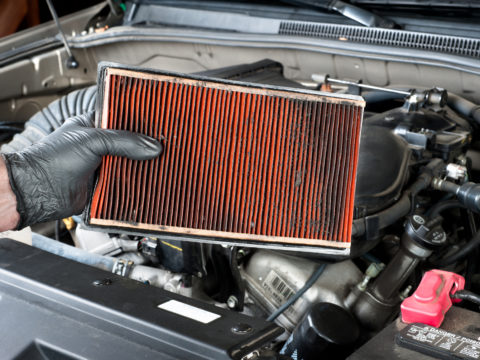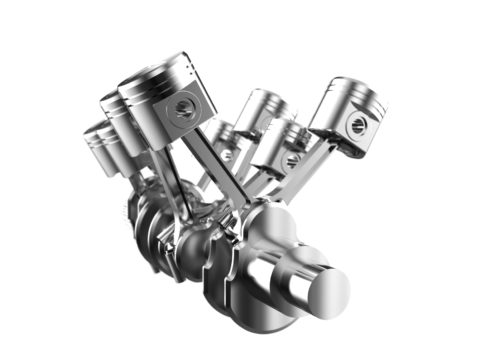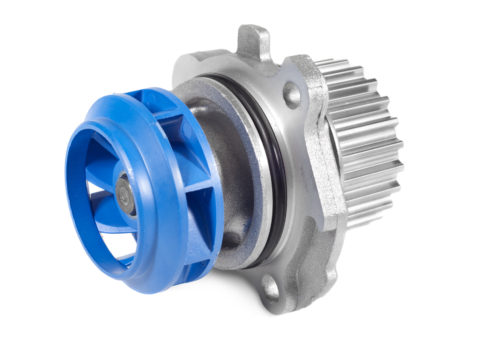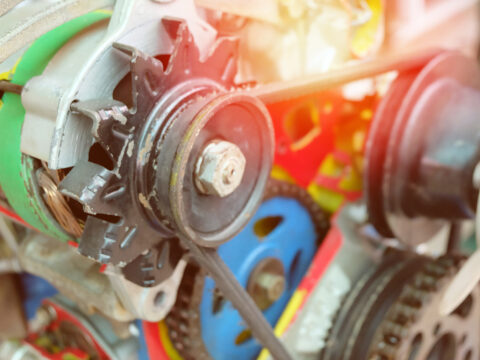One of the worst sounds in the world is an unexpected noise coming from your car engine. No one wants to hear their engine making sounds, especially when it usually runs quietly and well. If you’ve heard a knocking sound at idle, you might be wondering what makes that sound and what it means.
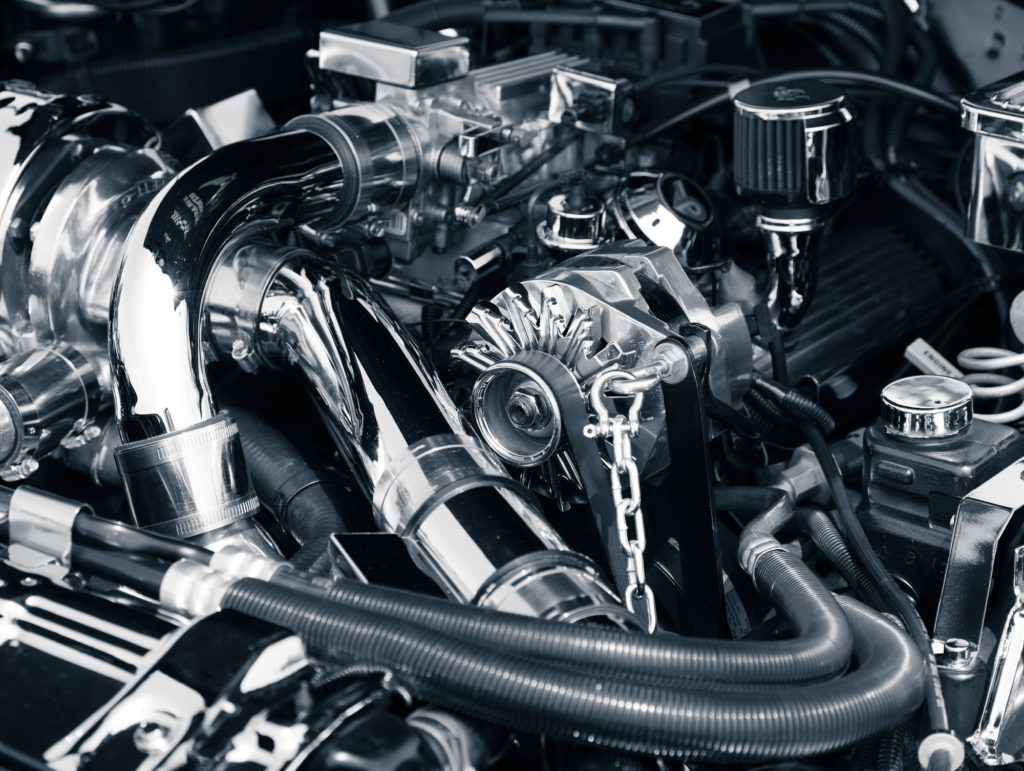
Contents
What Causes a Knocking Sound In Your Engine When Idling?
An engine knocking sound could be from several different causes, all having to do with the combustion of the gas in the engine. It could be from the fuel-burning unevenly, an improper gasoline or oil rating, or a buildup of carbon deposit on the inside of the engine. Wrong or worn-out car parts could also cause a knocking sound.
The most common causes of a knocking sound have to do with uneven combustion of air and fuel. If something is off in the engine, parts will knock against each other and cause this sound.
No matter what the issue is, it’s essential to have a mechanic look at your engine. Unless you have a working knowledge of car engines and how to fix certain parts of the engine, you should ask a professional for their opinion on your knocking sound.
Fuel Burning Unevenly
If your fuel is burning unevenly, it is because the air to fuel ratio in the engine isn’t correct. This causes engine combustion to be uneven. After a while, the engine will be permanently damaged by unevenly burning fuel.
In this scenario, the knocking sound is coming from the pistons hitting the cylinder wall. They are trying to do their job but can’t with the uneven fuel levels. The best thing you can do is replace the pistons and cylinder. It will save you money in the long run.
Low Octane Rating
Another common reason for a knocking sound (and one of the easiest fixes) involves the actual fuel your car is using. If you drive a high-powered car, it probably needs high-octane fuel. However, standard gasoline has lower fuel levels. Driving with low octane fuel can cause uneven fuel burning, and you might hear a knocking sound.
Check your car’s manual and see what octane rating it recommends. If you are using standard gas and your high-performance vehicle requires premium fuel, drive your car until it’s empty and start to use higher octane levels.
Carbon Deposits
Carbon is formed when gasoline ignites, and a car engine runs. Most gasoline has a cleaning agent to keep the engine from accumulating excessive carbon deposits. However, sometimes engines can catch extra carbon and it causes issues on the inside of the engine.
If you open up your engine and see carbon deposits on the inside of your engine, they are likely causing the combustion malfunction. Talk to your mechanic about cleaning your engine or adding an extra cleaning agent next time you get your oil changed.
Wrong Spark Plugs
Spark plugs are what start the combustion that gets the engine up and running. Without the proper spark plugs, your car will malfunction in several ways. If you have the wrong size of spark plugs, you might hear a knocking sound as the engine attempts to ignite the gasoline.
Fortunately, spark plugs are relatively inexpensive to replace. Take your car to a mechanic to make sure that this is the issue, and replace your spark plugs with ones that are newer or more compatible with your car model.
Loose or Poorly Lubricated Parts
If the knocking sound doesn’t come from those specific issues, it could be from any number of issues within the engine itself. Here are some of the parts that come loose, wear out, or need extra lubrication to work properly and could cause combustion and knocking issues:
- Bolts
- Pistons
- Cylinders
- Bearings
- Valve guides
- Timing belt
- Pulleys
- Knock sensor
Any of these could be the issue, so it’s essential to get your car to a mechanic as soon as you hear the knocking sound. If you wait until your car starts malfunctioning, you will likely damage the engine and need even further repairs.
General engine lubrication is an issue that could be solved by switching to thicker motor oil. If you regularly take your car in to get the oil changed, ask for a thicker brand and see if that helps. If you change your oil on your own, make sure to flush the engine before changing an oil thickness.
Engine Knocking At Idle Goes Away When Accelerating
Engine knocking is generally a sign of poor combustion and uneven fuel burning. In the beginning stages of damage, the sound will only be apparent during low RPMs or when the engine is idling. Once you speed the car up, you won’t hear the knocking sound. This doesn’t mean it’s gone; you are just going too fast to hear it.
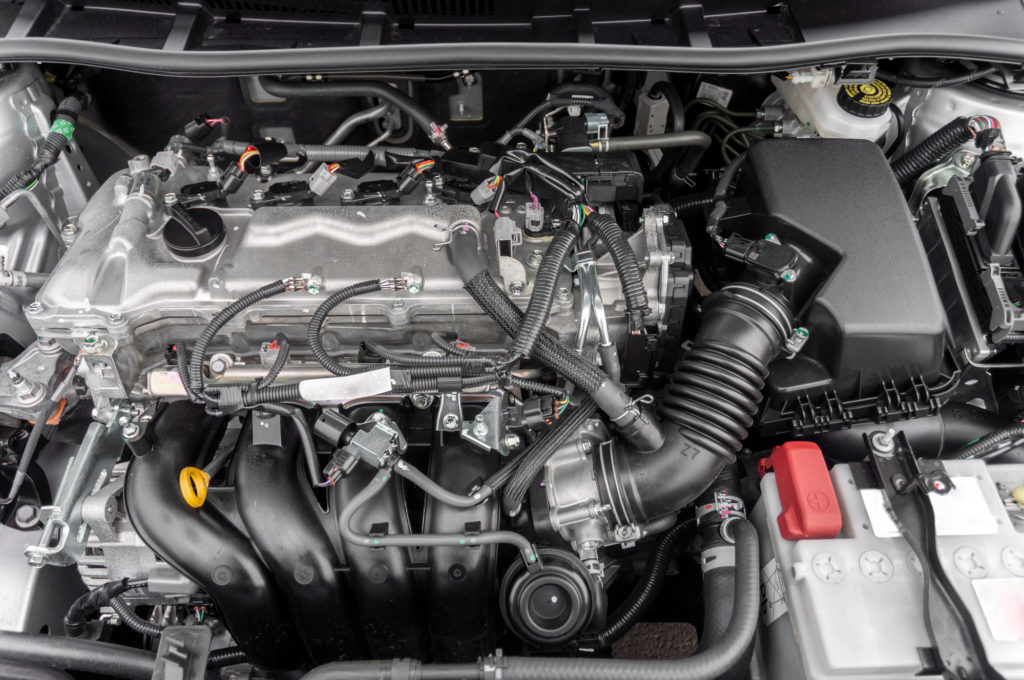
Engine Knocking at Idle When Cold
If your engine only makes knocking sounds when it’s cold out, it still could be a combustion malfunction. However, a more common cause is called “piston slap.” This is when the piston has loosened over time and doesn’t move up and down as it should.
The piston works extra hard to heat the engine properly in cold weather. It can slap side-to-side instead of up and down, causing a loud knocking sound as it heats the car. This problem is easily solved by tightening the piston in place.
Engine Knocking at Idle When Hot
If your engine only knocks when it’s warm, it is more than likely a combustion problem. Because combustion is a heating process, it’s more likely to make noise as it gets hotter. It could be any problem on this list, but a likely culprit is the lack of lubrication from the oil.
As the oil heats up, it thins. The thinner your oil is, the less likely it is to lubricate the engine properly. If your engine only knocks when it is idling and hot, it might be time to upgrade to thicker motor oil and get more lubrication throughout your car’s engine.
How Do You Fix a Knocking Sound in an Engine?
There are many potential issues with a knocking engine, but there are just as many potential solutions. The possible solutions depend on what the exact issue with your car is. If your car needs new spark plugs, then all you’ll have to do is replace the spark plugs. In extreme cases, you might need to replace the entire engine.
To fix a knocking sound, you first need to diagnose the specific problem. Take your car to a trusted mechanic. Unless you have the knowledge and experience to identify each of the potential issues we’ve discussed, you probably won’t be able to find out exactly what the problem is.
Once your mechanic tells you what’s wrong with your car, they can give you suggestions on what to do. Whether it’s as simple as changing the thickness of the oil or gasoline you use or as expensive as replacing the engine, you will know what is necessary. Many mechanics will recommend a partial fix before swapping out an entire engine.
Is It Dangerous to Drive Your Car With a Knocking Sound at Idle?
A knocking sound in your engine is never a good thing. While you can drive your car with it for a while, you don’t want to put off going to the mechanic and getting a diagnosis. The longer an engine goes unfixed, the more likely it is to sustain lasting damage.
If you deal with the knocking sound as soon as you hear it, you might be able to replace one part or add lubricant. However, leaving it until your engine actively malfunctions all but guarantees that you will have to replace large sections of the engine, if not the entire thing. Take care of the issue early, and your car (and wallet) will thank you.
Of course, if your car starts smoking, jumping, or shuts down while driving, stop immediately. It’s always better to be safe than sorry. Call a tow truck or have a friend tow your car to a local mechanic and hope it’s not a huge issue.
What to Do if the Engine Knocking Persists
Sometimes, a car’s engine persists in knocking no matter what we do. If you’ve already done some preliminary damage control, replaced spark plugs, or changed your octane rating, you might need to consider getting a new engine.
Engine replacements can cost anywhere from $1,000 to $6,000, depending on the make and model of your car. If you’ve had multiple issues with your vehicle or it’s an older model, it might be time to cut your losses and trade it for a newer model. You don’t want to pour money into a car that won’t last much longer anyway.
Always get your mechanic’s opinion before making any decisions. A trusted mechanic knows your budget and your car and will be able to give you good advice on a knocking issue in your car’s engine.

